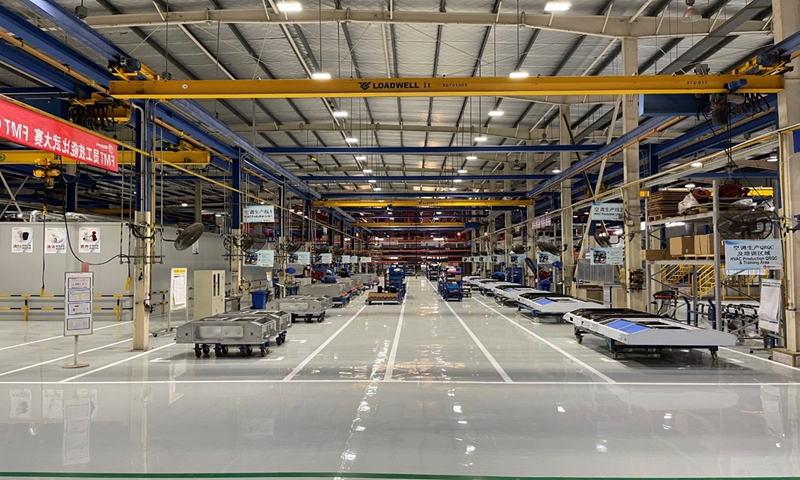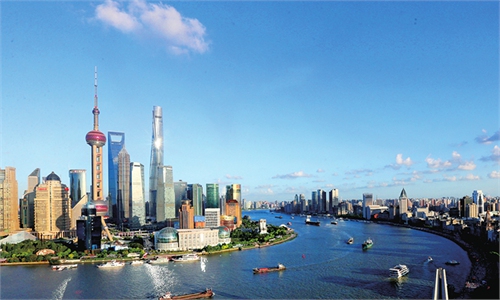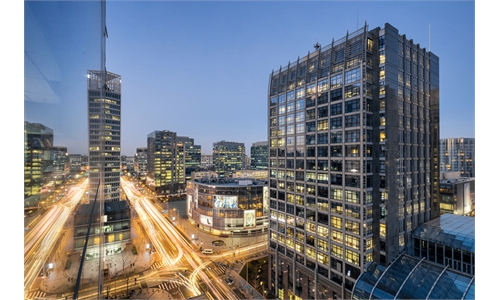
The subway air-conditioning workshop at Wabtec's Shanghai Baoshan factory Photo: Courtesy of Wabtec China
China will remain a strategically important market for Wabtec, which has "absolutely no plans" of moving out, a representative from the US company said, noting that the firm has full confidence in the nation, while also seeing mass opportunities brought by the China-proposed Belt and Road Initiative (BRI).
As a US-based company with more than 20 wholly owned units and joint ventures in China, the nation's significance in the global industrial chain is pretty obvious, Cui Yao, president at Wabtec China, told the Global Times in a telephone interview on Tuesday.
"China will continue to be an important strategic market for us, and we will further strengthen our localization efforts and investment in the nation. We are very confident in the Chinese market," Cui said.
Having long worked with its Chinese counterparts to serve BRI-related demand, Wabtec China said the initiative, which has brought tangible benefits for countries along its route, has also brought mass opportunities for multinationals in China.
The company mainly provides China's CRRC with rail parts as well as braking systems, according to the firm, and sales generated from BRI-related projects have exceeded $80 million over the past five years.
"We hope to continue to join hands with Chinese firms to complement each other's advantages, and make our own contributions to the national initiative - a win-win strategy for all parties," Cui said.
Talking about the latest Omicron flare-ups in Shanghai, where its largest factory in China is located, as well as the company's distribution center and logistics center for the Asia-Pacific, Cui said the firm also felt the impact.
But Cui noted that the Shanghai government allowed a team of 30 people to enter the factory early in the epidemic to ensure the operation of core businesses, and it has given great support in promoting the resumption of work and production, with some roundtable forums held to understand the needs of foreign companies.
"At present, operations in the second quarter will definitely be affected, but the annual business target can be met later in the year, and the overall impact is controllable," Cui said.
Commitment to the world's second-largest economy also stands firm despite temporary disruptions.
"We don't consider moving the industry chain out of China at all," Cui said, explaining that just reducing labor costs by 20-30 percent is not the main consideration for the firm. "It also depends on logistics, and other comprehensive costs."
Moreover, Cui said China's subway market is developing steadily, with an annual demand of about 5,000 cars, making it the largest single market in the world. The foundations of industrialization are also well established, and there has been a predictable environment over the years.
"As a US company, we also still feel welcomed in the China market, seeing a stable growth in our China revenue over the past years," Cui said, while also hoping for more cooperation for the two countries in areas such as the climate and sustainable development.




